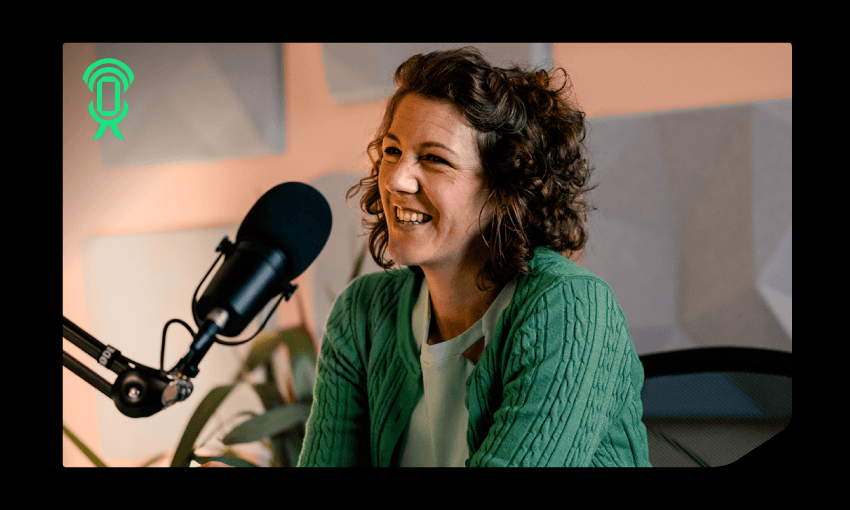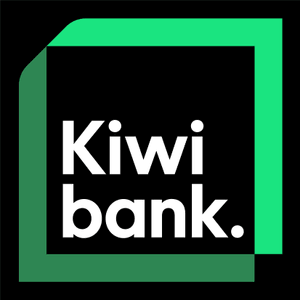A Kiwibank series in collaboration with The Spinoff Podcast Network, This is Kiwi celebrates extraordinary achievements by ordinary New Zealanders. In the third episode, host Jane Yee speaks to Dr Ellen Joan Nelson, esteemed academic, military veteran and Kiwibank Local Hero of the Year for 2023.
Dr Ellen Joan Nelson has many notches on her belt. She is passionate about improving working conditions for parents, advocating for flexible hours and embracing the vibrancy that children bring to our lives. Her mission is to ensure parents are not penalised in the workforce simply because they have children.
This is echoed in her influential campaigns, #WorkSchoolHours and #BelongingAutonomyPurpose, which aim to change workplace cultures to be more authentic and inclusive, fostering well being and productivity.
And that’s not all – her work to help 500 Afghan refugees evacuate Kabul when the Taliban took power in 2021 was a driving force behind her claiming the Kiwibank Local Hero of the Year award in 2023.
Despite her many accomplishments, Nelson remains incredibly relatable. Her vulnerability when talking about her own experiences is testament to how much of herself she brings to her work. And that openness and honesty enables us to see parts of ourselves in Nelson’s story, creating an opportunity to learn from her wisdom.
Nelson joined Jane Yee on the This is Kiwi podcast. Read an excerpt from the full interview below.
Jane Yee: As New Zealanders, we tend to play down our achievements. I want to start by asking what empowerment means to you?
Dr Ellen Joan Nelson: The word empowerment sometimes maybe implies that someone else is giving you power, and I kind of don’t love that connotation of it. But what I do like about the word empowerment, it’s really about letting people have their own voice. I really love it when people feel confident to be themselves, share their voice, tell their story and be themselves. I feel like that’s really empowering to be able to do that. It’s about not trying to contain people, not trying to make people smaller than they are or asking them to be something that they’re not. Empowerment is about being able to be yourself and owning that and feeling great about it.
You have your children here in the studio. I’ve got three kids. And I don’t see them as a burden, obviously, I find so much joy in them, but I worry that other people will view them that way. This is a huge problem in society globally, and something that you’re quite passionate about.
I try really hard to normalise the idea that workers and parents are the same people. I feel like society has these expectations on us that we’re going to parent like we don’t have a job, and that we’re going to work as if we don’t have kids. And that was because when the construct of work was designed around 100 years ago, the assumption was that every household had a dedicated worker, which was a man and a dedicated caregiver of children which was a woman. So it kind of was a case of workers and parents being two different people.
But that’s not how our society is today. And it’s not how it’s been for a really long time. What I’m asking is “how do we actually value the skills that parents bring to the workforce?” We multitask, we’re juggling, we’re pretty good at handling stressful situations, and I think they’re actually some pretty good skills to bring to the workplace. I’m really passionate about how we can view this differently and stop making it the societal cluster of a juggle that every parent is facing, trying to manage their children and manage their work.
I’m really curious to know what it was that made you think “I can help these people, these people who are trying to get out of Afghanistan, while I’ve got a tiny little baby.” It would have been, in my opinion, so much easier to just go, “I’m really busy, I got a newborn, I’ve got a toddler. I know these people need help, but I’m just not the person at the moment to be able to do that.” But you made yourself that person. Why?
These Afghan people, they reached out to a lot of New Zealanders who quite rightly, were not able to help, who were busy. To be really fair, I didn’t put my hand up and say “I’d love to get involved with this task”. That’s the truth. I didn’t. The task found me.
When I served in Afghanistan, it was just over a decade ago, I had 15 locals in my team alongside my five Kiwi soldiers, and they touched my heart. The most amazing part of my tour was the people and the experience of working with these locals. When the Taliban had taken over, one of them reached out to me, one of the people who had been in my team, and said, “Ellen, my family and I have fled, we’re hiding in danger for fear of our lives. Please, can you help?” I was breastfeeding a baby, I’ve got a three year old, I’ve just decided to start a business. I have no idea how to help. But yeah, of course I will. And it just snowballed. It snowballed in a way that I could never have imagined. But it just felt like the right thing to do. And I just couldn’t walk away. I cared about these people. And I couldn’t walk away.
There’s so much external noise that comes in, and it is a vulnerable time in your life when you first become a mother. But through all that noise and vulnerability, how do we find that empowerment?
The pandemic had a massive impact on the workplace and I think that gives us a really exciting opportunity to redefine how we do work.
It’s proven that we can do things differently, that people can work from home, that we can work in different constructs, that being present at the office is not what actually equates with adding value to the organisation. I think the landscape is ripe for opportunities. And that excites me. I think there’s a real place here for everyone to stand up for themselves and think “this is what I’m worth, this is my value, this is how I can contribute.”
This interview has been shortened. To hear the full kōrero, listen to This is Kiwi wherever you get your podcasts.


